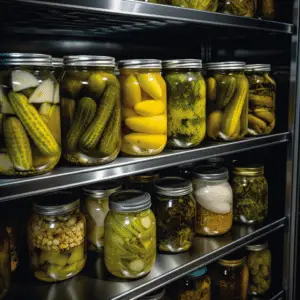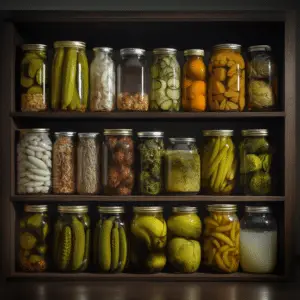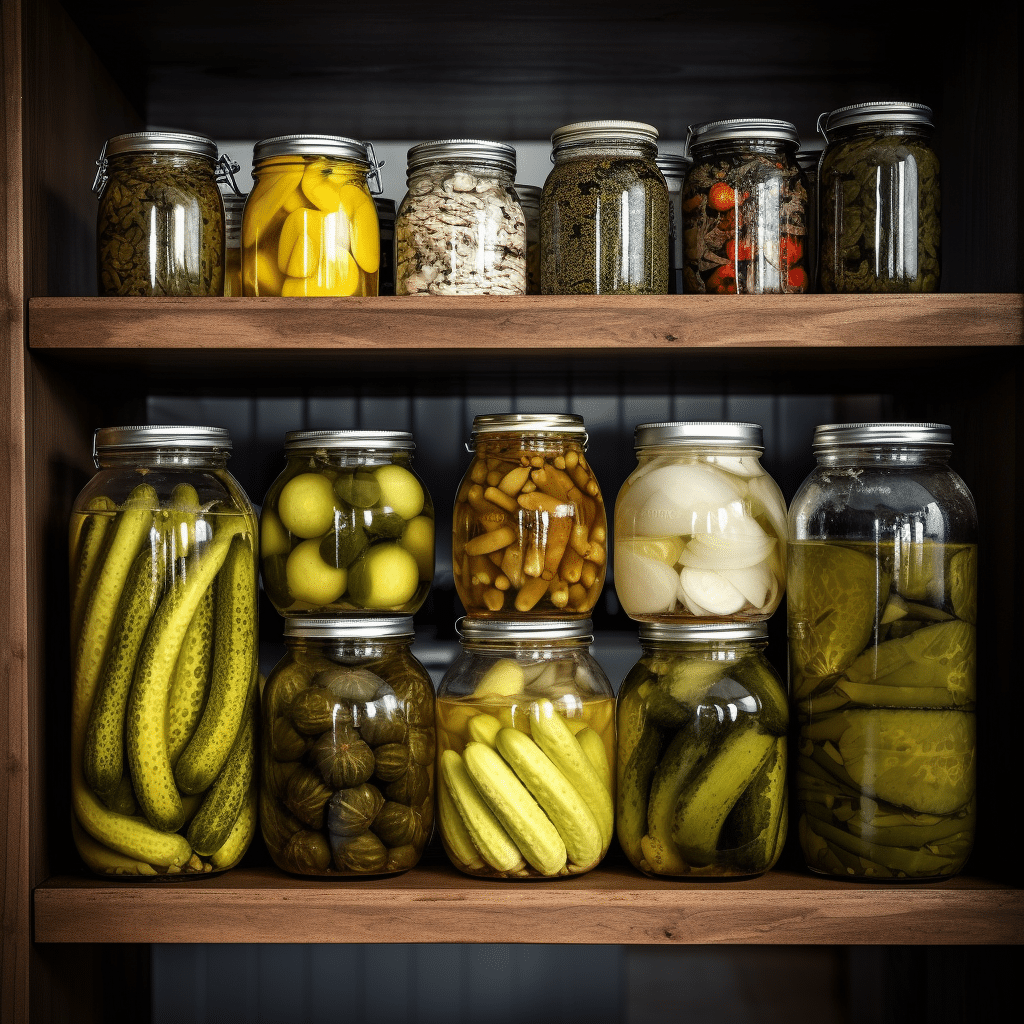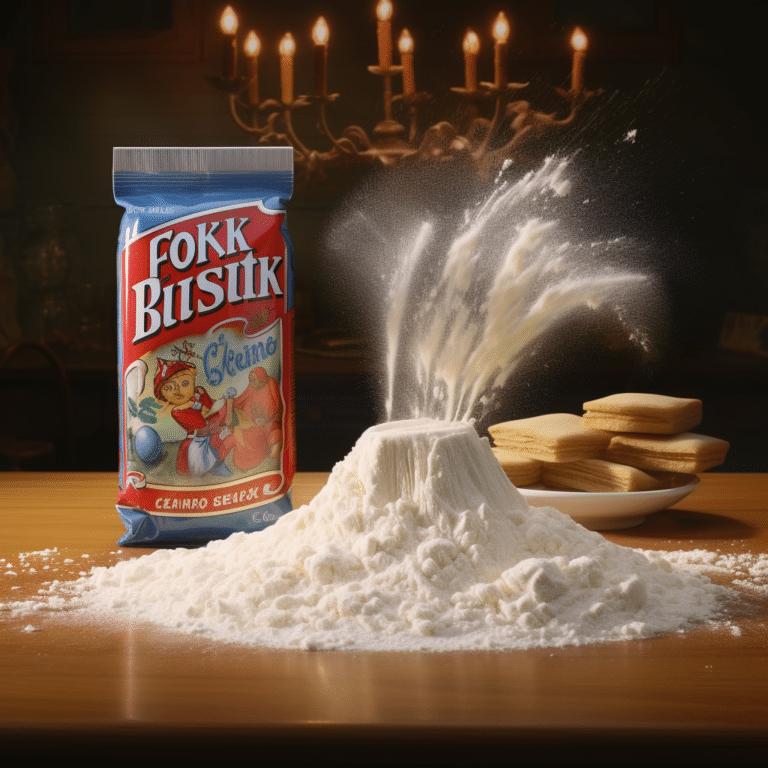Pickles Storage Guide: Refrigeration Shelf Life and Signs
Refrigerate Pickles: Storage Shelf Life Spoilage Signs: Pickles are a typical food you can add to meals or enjoy as a healthy snack. It is essentially vegetables like cucumber preserved in brine or acidic solution. Besides being a healthy food item, pickles are delicious and work great to satisfy your craving for tart foods.
But what happens when you buy a large jar of pickles you cannot finish? How do you store the remaining ones? Or you’ve had pickles in your pantry for a long and wonder if they are good or spoilt. Do you have to refrigerate pickles to remain of good quality? Stay tuned!

Do You Have To Refrigerate Pickles?
Not always. There are times when you have to refrigerate and others when you don’t have to. Pasteurized, unopened pickles don’t need refrigeration as they are sterile and in an environment that doesn’t allow entry of micro-organisms. This means you can safely and comfortably store your unopened pasteurized pickles in a dark, dry place, like the pantry or in a cupboard.
But opened pasteurized pickles needs refrigeration. That’s so because once the package is opened and the pickles are used, it’s easy for bacteria to be introduced to the pickles, spoiling them.
This is significantly more common if the pickles aren’t fully submerged in their solution. The constant presence of air can also facilitate the rapid growth of micro-organisms, spoiling them. So, always refrigerate your opened pasteurized pickles to prevent spoilage and bacterial contamination.
Unpasteurized pickles, whether opened or unopened, need to be refrigerated at all times. That is because they are not sterile and may contain micro-organisms. The micro-organisms may spoil the pickles if left at room temperature, hence, the need for refrigeration. Therefore, remember always to keep your unpasteurized pickles in the fridge.
How Long Do Pickles Last?
How long pickles can last depends on several factors. But as a guideline, the best-by-date should form a sound basis on the shelf life. Unopened pickles can last for months in excellent quality as the vegetables are tightly sealed in a solution packed with preservatives, like vinegar. So, not much can happen to the pickles in this condition.
Once you open the pickle jar, everything changes. First, you must ensure all the veggie pieces are constantly submerged in the brine. Otherwise, you risk them deteriorating faster, like in a few weeks.
As a step guide, unopened pasteurized pickles can last more than three months, possibly up to a year/two in the pantry. Opened pasteurized pickles should not be kept in the pantry. When refrigerated, pasteurized, and opened, pickles can last more than three months in the fridge.
For unpasteurized pickles, whether opened or not, need to be refrigerated all the time. When refrigerated, unopened unpasteurized pickles are best to use the past three months after their best-by date. Opened unpasteurized pickles can last more than three months from the manufactured date in the fridge.
How Can You Tell Your Pickles Are Bad
Although pickles are more resistant to spoiling than regular food, that doesn’t mean they are immune to it. Pickles can go bad, and eating such can make you very sick. Here are a few tell-tale signs that your pickles are bad and should be discarded.
Appearance
Start by carrying out a visual test. Observe your pickles in their jar. Your pickling brine should be pale amber in color. White sediments sitting at the bottom of the jar are also okay. But if your pickles have an odd color or the brine has changed noticeably, your pickles may have been spoilt.
Check out for mold too. Mold usually forms when some pickles are sitting up above the brine. However, mold can also float on top of the brine. If you see any mold spots discard the pickles right away.
Smell
Once you’re done with the visual assessment, it’s time to give your pickles a smell test. Any off smell indicates the pickles have gone bad. If your pickles also have developed an unfamiliar or strange odor, toss them away.
Taste
If your pickles pass the visual and smell test, it’s time to taste them. If your pickles have lost their crunch but taste the same, they’re probably still safe to eat. But if they have a weird flavor, they may be spoiled and should be discarded.
How To Store Pickles
How to store pickles depends on whether the pickles are pasteurized or not.
Pasteurized Pickles
Most pickles at grocery stores undergo pasteurization and rarely need refrigeration unless opened. During pasteurization, fermentation kills all the bacteria, whether good or bad. Such pickles can be safely stored at room temperature.
Remember to keep pasteurized pickles away from heat or sunlight when storing them at room temperatures. A dark place like a pantry or kitchen cabinet is ideal for storing unopened pasteurized pickles.
Once opened, transfer the pickles to a jar with a tight-fitting seal and refrigerate.
Unpasteurized Pickles
Unlike pasteurized pickles, unpasteurized pickles will always be located in the cold center of the store. That’s because the fermentation process is ongoing, and the “good” bacteria are active inside the pickle jar. The pickles are stored in the fridge to reduce the fermentation process rate.
While you can keep your unpasteurized unopened pickles at room temperature, that’s hardly recommended. The fermentation process will continue happening, making your veggies sour. Since the veggies are not sterile, they may contain bacteria that will be activated when kept at room temperature, unlike in the fridge.
To be on the safer side and prevent your veggies from becoming sour, refrigerate your unopened unpasteurized pickles.
Opened unpasteurized pickles should always be kept in the fridge.

Conclusion
Refrigerate Pickles: Storage Shelf Life Spoilage Signs You don’t always have to refrigerate pickles. Your pickles are safe to stay at room temperature if pasteurized and unopened in their jar. However, once opened, you’ll need to cool your pasteurized pickles.
Unpasteurized pickles should always be stored in the fridge, whether opened or unopened. When left at the counter, the bacteria present may become active and multiply, rendering the veggies unsafe to sit. Refrigeration also slows down the fermentation process. Otherwise, you risk your pickles becoming extremely sour.





